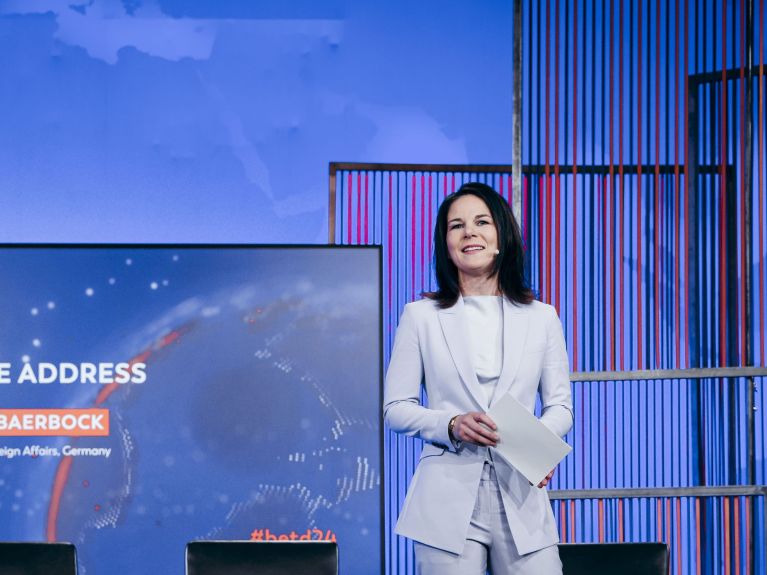Forum for the global energy transition
The 10th Berlin Energy Transition Dialogue (BETD24) will be taking place on 19 and 20 March. We present key information about the conference.

The IPCC’s latest assessment report makes it quite clear: if we want to keep the impacts of climate change at a tolerable level, rapid action is crucial. By the middle of this century at the latest, the entire world will have to become climate-neutral, experts say. In view of current figures, which still show that global emissions are rising, this will be quite a challenge.
Whether the world achieves this goal will depend above all on how successful states around the world are at coordinating action with one another, given their respective circumstances. This in turn requires intensive exchange – not only at the political but also at the economic and societal levels.
Over 2,000 participants from 90 countries
In this context, the Berlin Energy Transition Dialogue (BETD) has an important role to play as a forum for shaping the global energy transition. Since 2015, the German government has been inviting experts from all over the world to engage in exchange, strengthen partnerships and develop strategies. The intention is to work together to advance the necessary phase-out of fossil energies and establish alternative supply structures.
The event has evolved to become one of the biggest international dialogue forums on climate change. Each spring, over 2,000 participants from more than 90 countries, including 50 foreign and energy ministers and secretaries of state, as well as more than 100 high-ranking speakers, arrive in Berlin to attend the BETD. Between meetings, the so-called Green Sofa travels around the world, offering politicians, entrepreneurs and climate activists the opportunity to express their views on the energy transition. During the more than 40 stops it has so far made in 19 countries worldwide, the Green Sofa has welcomed and interviewed around 1,000 people.

Strengthening international energy partnerships
One important objective of the BETD is to strengthen international energy partnerships. German companies and universities are already cooperating in this area with more than 20 countries. For the government representatives of other countries, the programme offered during Berlin Energy Week (18 to 22 March) is therefore of particular interest, as it frames the conference with a variety of side events: everything from guided tours and government pitches to discussions that provide an opportunity to engage in an exchange with experts from Germany’s energy sector about concrete legal and economic questions.
Further information about the programme, speakers and registration can be found here: www.energydialogue.berlin


